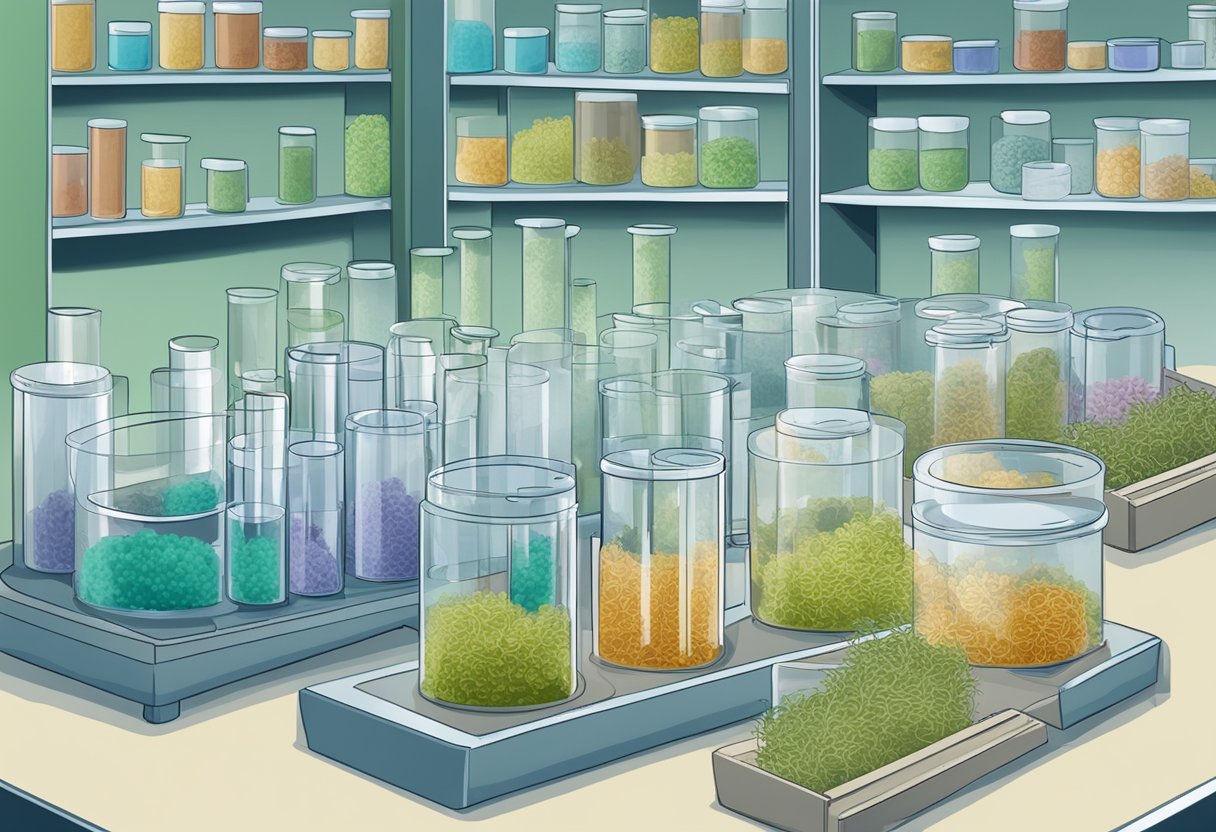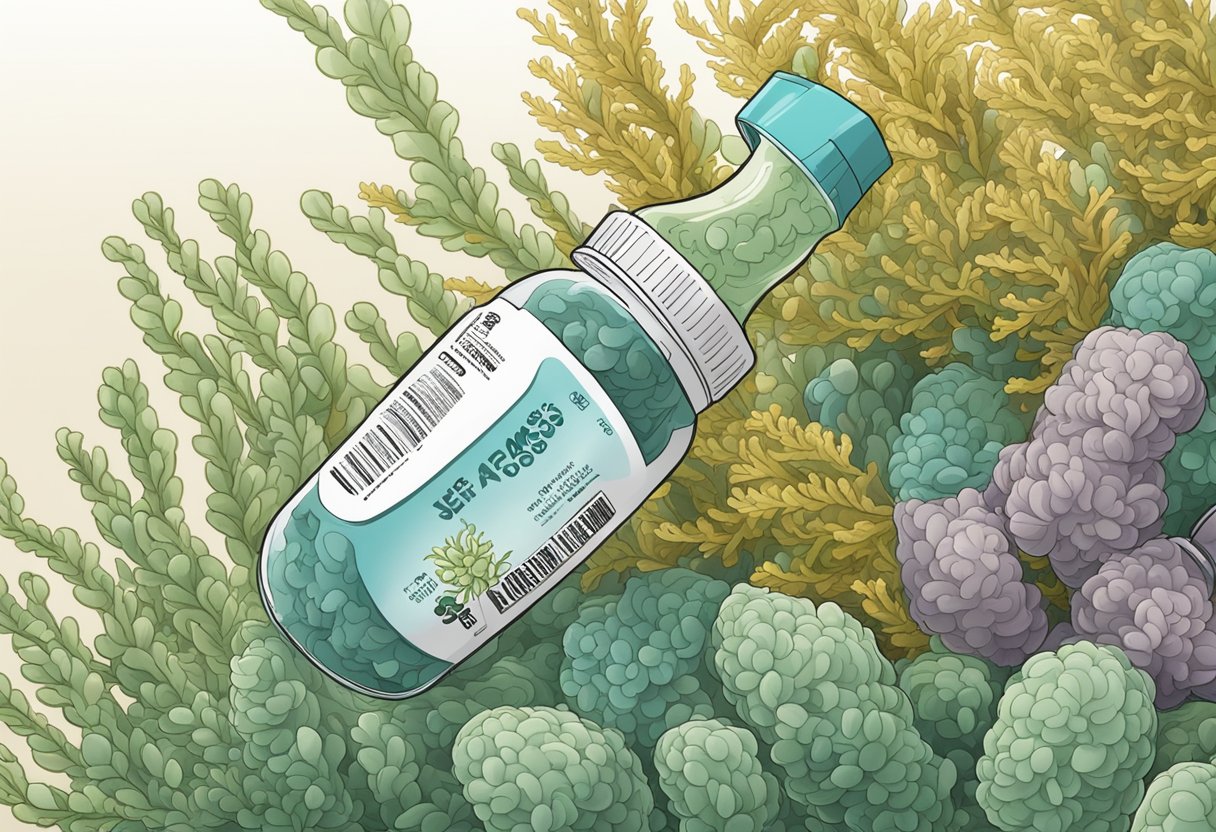Sea moss is a type of seaweed that has gained popularity as a supplement due to its high content of minerals and vitamins, particularly iodine, which is known for its potential health benefits. It's commonly consumed for its effects on thyroid function, digestion, and immune system enhancement. On the other hand, antibiotics are medications used to fight bacterial infections in the body. They work by killing bacteria or preventing them from reproducing and spreading.
When taking sea moss alongside antibiotics, it's crucial to consider the possibility of interactions between the two. As a supplement high in iodine, sea moss may affect the absorption of certain antibiotics, altering their effectiveness. Individuals should be aware of the potential for sea moss to either inhibit or enhance the action of antibiotics. Attention should also be paid to specific antibiotics that may not be advisable to take with sea moss, given the supplement's unique properties and its ability to influence the body's internal processes.
Key Takeaways
- Sea moss is rich in iodine and may impact antibiotics' effectiveness.
- Certain antibiotics may have reduced absorption if taken with sea moss.
- It's important to consult healthcare providers about sea moss and antibiotic combinations.
Potential Interactions of Sea Moss with Antibiotics

Sea moss, a type of seaweed, may interact with certain antibiotics, which could potentially alter the effectiveness of the medications or lead to adverse effects.
Interactions with Medications
Tetracycline and fluoroquinolones, two kinds of antibiotics, are known to have potential interactions with sea moss. These interactions might occur because sea moss contains minerals like calcium and magnesium, which can bind to these antibiotics and possibly reduce their absorption, leading to decreased effectiveness. It is therefore crucial for individuals on antibiotics, especially these classes, to monitor their intake of sea moss.
Here's a brief overview of the interaction potential:
-
Tetracycline Antibiotics:
- Calcium in sea moss may bind to the antibiotic and impair its absorption.
-
Fluoroquinolones:
- Interaction may involve magnesium, potentially decreasing the drug's efficacy.
Consulting Healthcare Providers
When considering sea moss supplements in conjunction with antibiotic regimens, individuals should consult with healthcare providers, including doctors or pharmacists. Healthcare providers can provide personalized advice, taking into account the specific type of antibiotic, dosage, and individual health conditions. They can guide whether it's safe to consume sea moss and, if so, the appropriate timing to avoid interactions.
- Ask a Pharmacist: For on-the-spot advice regarding supplements and medications.
- Consult Your Doctor: For an in-depth evaluation of your overall treatment plan.
Communication with healthcare providers is essential for safely managing the combination of sea moss with antibiotics.
Can sea moss interfere with the absorption of antibiotics?

Sea moss, a marine plant, is rich in nutrients, but whether it affects antibiotic absorption is not well-established. Nutrient-dense, sea moss contains minerals like calcium, zinc, iron, potassium, and magnesium, as well as vitamins, protein, fiber, and carbohydrates, with relatively low calories and sugar content. There is no conclusive evidence to date indicating that sea moss significantly interferes with the efficacy of antibiotic treatments.
When taking antibiotics, it's crucial to consider their interaction with dietary supplements. Antibiotics interact with bodily systems to target bacterial infections, and their absorption could be influenced by various factors, including certain nutrients and compounds present in food and supplements.
For example, calcium can bind to some antibiotics, hindering their absorption. Similarly, iron and zinc may also interact with specific classes of antibiotics, potentially reducing their effectiveness. However, it's uncertain if the levels of these minerals in sea moss are sufficient to cause such interactions.
Patients should consult healthcare providers before combining sea moss with antibiotic treatment. If one chooses to consume sea moss while on antibiotics, it may be advisable to separate intake times to minimize any potential interaction.
Healthcare professionals are best equipped to provide advice tailored to individual health needs, considering all aspects of their dietary intake and medication regimen.
Are there any antibiotics that should not be taken with sea moss?

When incorporating sea moss into one's diet, certain considerations must be taken into account regarding its interaction with antibiotics. Sea moss, a type of seaweed, contains various minerals that may influence the effectiveness of antibiotics.
Antibiotics such as tetracycline and fluoroquinolones have been noted for their potential to interact negatively with sea moss. The minerals in sea moss could chelate, or bind to, these antibiotics, which may impede their absorption:
- Tetracycline: Minerals in sea moss can form complexes with tetracycline, reducing its bioavailability. It's crucial to maintain a separation of several hours between taking sea moss and this category of antibiotics.
- Fluoroquinolones: Similar to tetracycline, the absorption of fluoroquinolones can also be interrupted by the concurrent intake of mineral-rich substances like sea moss.
One should be vigilant and consider having discussions with healthcare professionals before combining these antibiotics with sea moss. It's imperative to heed guidance regarding timing and potential interactions to ensure the effectiveness of the antibiotic treatment remains uncompromised.
Can Sea Moss Enhance the Effectiveness of Antibiotics?
Sea moss, a type of red algae, is lauded for its rich nutrient profile, containing vitamins and minerals that could be beneficial for overall health. When considering its interaction with antibiotics, it is imperative to understand that no decisive scientific evidence confirms that sea moss can enhance the effectiveness of these medications.
The consumption of sea moss might support general well-being, which is essential during an antibiotic course. Its content of iron, magnesium, and iodine are essential nutrients that help maintain the functions of the immune system.
-
Nutrients in Sea Moss
- Iron
- Magnesium
- Iodine
- Vitamins A, C, E, and K
- Omega-3 fatty acids
However, individuals should exercise caution and consult healthcare practitioners before combining supplements with antibiotics. The key reason is to avoid potential interactions that could either reduce the effectiveness of the medication or cause adverse effects.
-
Considerations Before Combining Sea Moss with Antibiotics
- Consult a healthcare provider
- Address potential interactions
- Consider timing of intake
In some cases, certain components in dietary supplements could potentially bind to antibiotics in the gut, affecting the absorption and efficacy of the antibiotic treatment. Therefore, timing the intake of sea moss separately from antibiotics may sometimes be recommended, if approved by a healthcare provider.
-
Suggested Timing Approach:
- Separate the consumption of sea moss and antibiotics by at least 2 hours.
In conclusion, while sea moss has a nutrient-rich composition that may support health, its direct impact on the effectiveness of antibiotics remains unclear and warrants further research with caution advised in the meantime.





